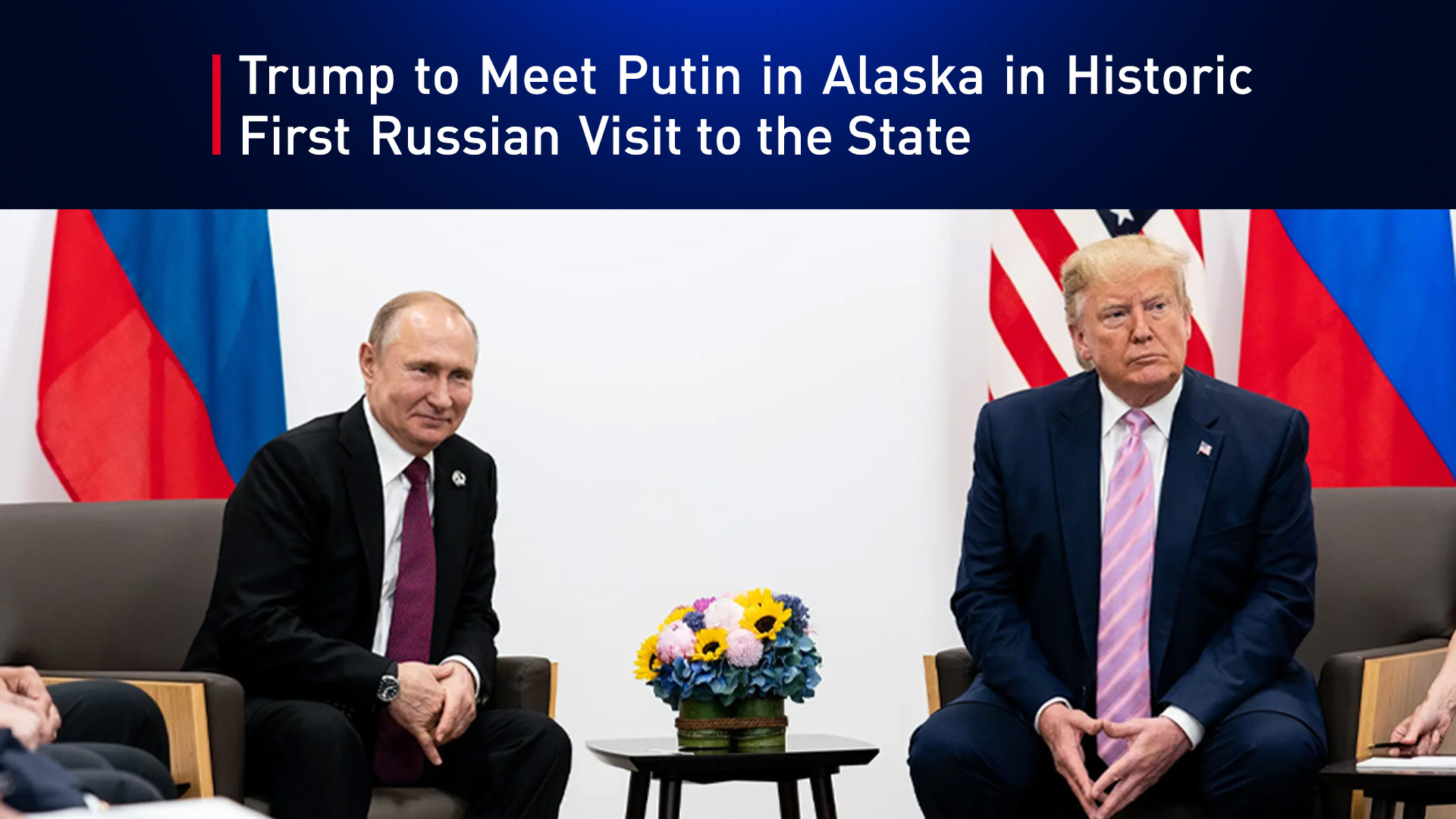Trump to Meet Putin in Alaska in Historic First Russian Visit to the State
U.S. President Trump will host Russia's Putin in Alaska next week - the first Russian leader visit to the state. The summit aims to negotiate a Ukraine settlement ahead of Trump's sanctions deadline.

ERBIL (Kurdistan24) – U.S. President Donald Trump announced on Saturday that he will meet Russian President Vladimir Putin in Alaska next week, marking the first time in history that a Russian leader has visited the state.
In a post on his Truth Social platform, Trump wrote: “The highly anticipated meeting between myself, as President of the United States of America, and President Vladimir Putin, of Russia, will take place next Friday, August 15, 2025, in the Great State of Alaska. Further details to follow. Thank you for your attention to this matter!”
The announcement coincides with the deadline Trump had set for Putin to either reach a peace agreement or face severe economic sanctions, underscoring the high stakes of the planned summit. Putin has not visited the United States since 2015 and last met Trump in 2018.
Russian presidential aide Yuri Ushakov told RT that the Alaska summit will primarily focus on achieving a long-term peaceful settlement to the war in Ukraine.
“Alaska and the Arctic represent a point of intersection for our countries’ economic interests, with prospects for implementing large-scale, mutually beneficial projects,” Ushakov said, while stressing that the main priority will be discussing pathways to a lasting resolution of the Ukrainian crisis.
According to RT, Putin’s upcoming trip will mark the first-ever visit by a Russian head of state to Alaska, a milestone in the history of U.S.-Russia relations.
Nuclear Tensions Underscore the Summit
The upcoming meeting comes against the backdrop of sharply escalating nuclear rhetoric between Washington and Moscow. President Trump recently ordered the deployment of two nuclear submarines to undisclosed locations, citing what he called “highly provocative” remarks by former Russian President Dmitry Medvedev, now Deputy Chairman of the Russian Security Council.
“Based on the highly provocative statements of the Former President of Russia, Dmitry Medvedev... I have ordered two Nuclear Submarines to be positioned in the appropriate regions, just in case these foolish and inflammatory statements are more than just that,” Trump posted on Truth Social. “Words are very important, and can often lead to unintended consequences, I hope this will not be one of those instances.”
In a follow-up post, Trump stressed: “This is Biden’s War, not ‘TRUMP’s.’ I’m just here to see if I can stop it!” He also cited mounting battlefield losses, claiming nearly 20,000 Russian soldiers were killed in July alone, bringing the total Russian military death toll in 2025 to over 112,500, while Ukrainian forces have lost approximately 8,000 soldiers, excluding the missing.
Medvedev, in turn, responded on Telegram that Trump’s submarine order validated Russia’s stance: “If the words of the former Russian president prompt such a reaction from America's armed forces, then clearly Russia is right and is on the correct path.”
This war of words traces back to Trump’s July 28 ultimatum that Russia had 50 days to reach a ceasefire with Ukraine, a deadline he later suggested could shrink to 10–12 days. Medvedev countered that such ultimatums were dangerous, warning they could push the conflict beyond Russia and Ukraine to a direct clash with the United States.
Adding to the tense climate, Russian President Vladimir Putin reiterated on Friday that Moscow’s conditions for ending the war remain unchanged and must address the conflict’s “root causes.” His remarks followed overnight Russian air defense claims of shooting down 60 Ukrainian drones, while Kyiv reported that a missile and drone strike killed 26 people and injured 159.
With nuclear-capable assets being deployed and sharp rhetoric exchanged at the highest levels, the Alaska summit is set to unfold amid one of the most dangerous moments in U.S.-Russia relations in recent years.
